Who is responsible if these things happen?
Organisations are, and so are we!
We notice you are currently visiting the UK site. Would you like to visit our main site instead?
Your web browser is out of date. Update your browser now for better experience on this site. https://browser-update.org/update-browser.html

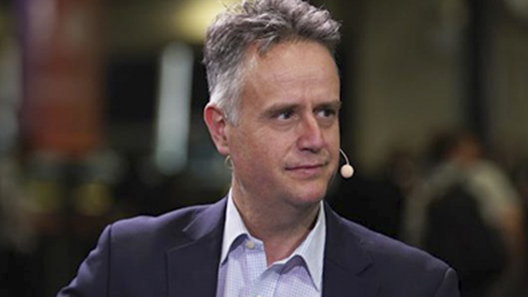
Bill Mew is a key opinion leader, digital ethics campaigner and entrepreneur. As a key opinion leader, Bill focuses on striking the right balance between ‘meaningful protection’, where he has been ranked as the top global influencer for data privacy, and ‘the maximization of economic and social value’, where he is also one of the top influencers for everything from cybersecurity, and digital transformation to govtech and smarter cities. He also appears weekly on TV/Radio (BBC, RT, etc) as an expert on these topics - more broadcast airtime than any other technologist in the UK.
As an entrepreneur, Bill is the founder and CEO of CrisisTeam.co.uk, where he works with an elite team of experts in incident response, cyber law, reputation management and social influence to help clients minimize the impact of cyber-attacks.
In many organisations there is a prevailing attitude that cybersecurity is something that only a CISO does, or that privacy is something that only the compliance department does. Unless there is more collective responsibility for both cybersecurity and privacy, our data will not be secure and if things go wrong, we’ll all be held liable - both collectively and individually.
In such organisations, senior management is still failing to take cybersecurity and data privacy seriously. All too often they believe that these are tasks that can be delegated to the CISO or DPO (Data Protection Officer) and forgotten about. If senior management continues to see things this way, then it is hardly surprising when this kind of attitude permeates down through organisations and staff at all levels who also fail to take these issues seriously.

If the decision to procure unencrypted USB drives, SSDs or IOT devices is based purely on price, without considering whether they are secure or have hardware encryption, then those unencrypted devices create a cyber vulnerability. This puts the whole organisation at risk of a data breach.
If staff fail to follow basic cybersecurity rules and are careless with passwords or email attachments, they are putting the security of the entire organisation at risk. Cyber criminals actively target weak or known passwords and use phishing tactics to compromise security of their victims. These are some of the most common attack vectors for cyber incidents.
GDPR stipulates that personal data can only be collected with consent for a stated purpose. If you harvest or share data illegally then you are putting everyone at risk of major fines and litigation.

Organisations are, and so are we!
If you see that your organisation is using unencrypted USB drives, SSDs or unsecure IoT devices, you need to speak out. If you notice your colleagues failing in their cyber hygiene, you need to speak out. If you witness a member of the marketing department using customer data inappropriately, you need to speak out.
If we are to change attitudes and make people take cybersecurity and data privacy seriously in an organisation’s top to bottom, then we need to change the cultural mindset.
There are plenty of incentives for organisations to do so. There is clear evidence that customers will happily do business with organisations that they think will take care of their data and are more reluctant to do business with those that do not. Retaining customer trust and avoiding any kind of cybersecurity incident that can undermine such trust should be top of mind for us all.

In addition, there are plenty of deterrents to make organisations take data protection seriously. For starters, GDPR stipulates a maximum fine of €20 million or 4% of annual global turnover – whichever is greater – for EACH incident. The cost of fixing an incident can run into millions and if it’s a ransomware attack, the cyber criminals could be demanding a multi-million-euro ransom on top of this. You could also face litigation from the people whose data was compromised.
As if such sanctions on an organisation were not enough, there are also emerging sanctions on individuals as well. A recent case in the US has set a new precedent for a cyber incident case when board members and a CISO were individually named as defendants. A report by analyst firm Gartner has predicted that CEOs could soon be personally liable for cyber-attacks.
As citizens and as customers, we want organisations to protect our data, and when we are responsible for the data of others the standards need to be just as high. We should be concerned - both collectively and individually - that we could all be held liable. But we should be equally motivated to focus on data protection as it is the right thing to do.
#KingstonIsWithYou
We offer advice on what benefits SSDs will bring to your specific storage environment and which SSD is most suitable for your mobile workforce to ensure you are working securely on the go.
We offer advice on what benefits using Encrypted USB will bring to your organisation & which drive is best suited to your business needs.
Was this helpful?
No products match your current filter selection. Try adjusting your filters to explore more options.

Looking for improved data security & need to know what is encryption? Kingston covers the basics.
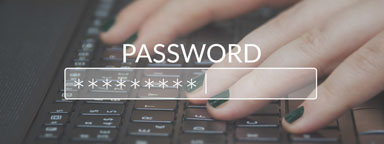
Hardware, not software-based password protection, is the best way to protect files and drives.

Secure important personal and private information on a PC with a hardware-encrypted SSD.

Breaches remain a major threat. Explore the need for comprehensive cybersecurity measures.

Here is a list of USB security features to consider for data protection.

Learn what the 3-2-1 data backup method is and why it is your best defence against ransomware.
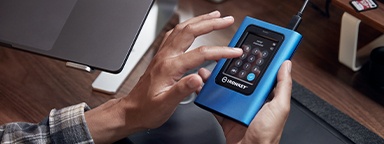
Learn data security best practices with Dr. Vynckier, and the importance of offline backups.

David Clarke covers encryption, super user safeguards, vulnerability management, and training.

Learn how Kingston IronKey's solutions helped EgoMind enhance their data security hygiene.

Built for disparate purposes, client SSDs and enterprise SSDs have different properties.

We discuss NIS2 and DORA, and how organisations can turn compliance into an opportunity.

We discuss the shifts in how organisations are storing and encrypting sensitive data.

Kingston examines how to secure sensitive files with the increasing vulnerability of email.

Learn how Kingston IronKey hardware-encrypted solutions supports NIS2 Directive compliance.

Kingston IronKey has hardware options to protect small and medium businesses against cybercrime.

FIPS 140-3 Level 3 is certified by the world-leading agency NIST as the apex of encryption.

Questions to ask when seeking the right SSD for your organisation’s data center.

Our infographic showcases the differences between software and hardware-based encryption.

2023 has been a year full of challenges and innovations. But what will 2024 bring?
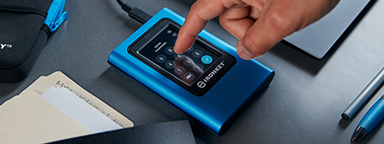
Learn about two methods that give SMBs superior resilience vs ransomware: encryption and backups.
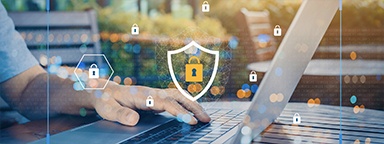
In this whitepaper, we explain how to enforce a DLP strategy, while allowing USB drive use.
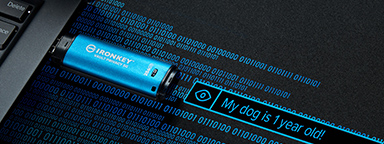
Enterprise-grade and military-grade digital security: two high standards with different requirements.
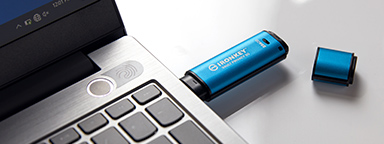
Learn how hardware encryption can protect a travelling lawyer’s confidentiality with secure file storage.

How is pen testing ensuring Kingston IronKey USB drives lead the way in trusted data security?

Hardware encrypted Kingston IronKey drives protects organisations’ data on the move.

Bring your own device (BYOD) policy is tricky for employers. How to balance security & convenience?

How do encrypted drives improve cybersecurity and compliance for finance companies? Kingston explains.

DLP offers tools for network admins to protect sensitive data from cybercrime and negligence.

A look at how the requirement for data encryption can be key to any organisation's security strategy.

How can we bolster network security with remote working and international travel so common now?

Invest in encrypted drives so you do not incur expensive legal fees if they are lost or stolen.

Discover why national security agencies trust Kingston IronKey to protect their data.

A company’s IT specialists should be expected to add data security to the PCs of remote workers.

Kingston’s three key practices for robust DLP for businesses that handle sensitive data.

You can read and write to an encrypted USB flash drive with an iPad or iPhone with the right adaptor. Here’s how.

Learn why hardware encryption beats software encryption for law firm data protection.

A brief explaining the purpose and types of data security software available.
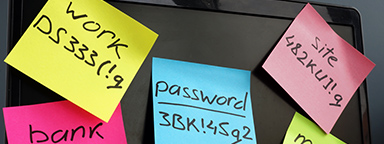
Passphrases are superior to complex passwords for keeping data secure, with many powerful benefits.

HIPAA requires healthcare organisations to keep patient data safe at all times, including in transit.
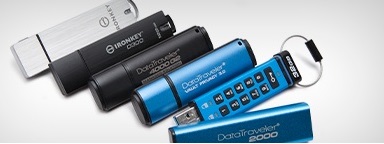
This requires encryption of sensitive data, appointing a Security Officer, cyber security programmes and policy adoption.
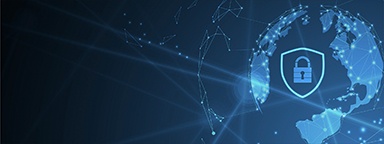
Kingston IronKey encrypted USBs are a security consideration for organisations of all sizes.

We compare unencrypted and encrypted USB drives and explain how to keep data secure!

Learn how Kingston IronKey is protecting the intellectual property with customisation.

Discover why Kingston IronKey is the go-to solution for protecting financial services data.

Learn how Kingston IronKey is securing the military operations’ data.
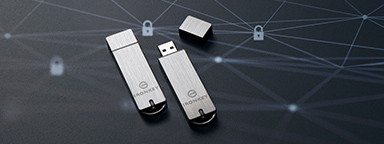
How can you get your organisation to use encrypted drives and make them part of your security policy? Here are some tips.

Learn how Kingston IronKey is protecting telecoms industry's data using encryption.

Encryption is an incredibly helpful option for creatives to protect their clients’ important files.

Kingston IronKey encrypted USBs: a small but important part of any organisation’s security strategy.

Kingston IronKey can help mitigate data loss due to the rise in lost electronic devices.

In this eBook, we explore how Encrypted USB drives have become a key tool in keeping data secure.
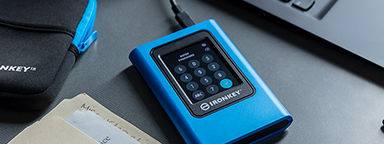
How to use your IronKey Vault Privacy 80 External SSD: set password, connecting to a PC and more.

Organisations are considering data security options to protect against private mobile data breaches.

Discover how Kingston IronKey is protecting the sensitive data of the finance sector.

Here is how Kingston IronKey helped protect the sensitive data of the Energy industry.

We explore our KingstonCognate experts’ thoughts on cyberthreats and cybersecurity challenges.

Protecting data on the move with superior hardware-based Advanced Encryption Standard (AES) 256.

Users can disable software-based encryption, which can lead to legal fees if the drive is lost.

We explore Tomasz Surdyk's thoughts on how all entities can stay secure in the digitised world.
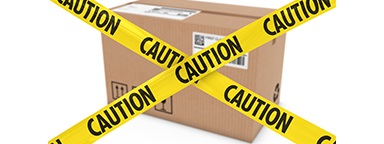
Don’t plug any USB drives into your computer if you don’t know exactly where they came from.

What we learned from Kingston’s experts and tech influencers on work-from-home enablement Twitter chat.

There are benefits to using both cloud storage and hardware-based encryption.

We explore the top 12 tips small and medium size enterprises can take to enhance cybersecurity.

We’ve examined several factors using unique research to identify what may impact markets globally in 2022.

2021 has been a year full of challenges and innovations. But what will 2022 bring?
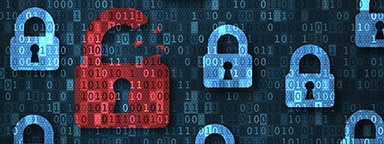
Prof Sally Eaves shares her thoughts on the SME cybersecurity landscape and the need for education & support.

Bill Mew shares his thoughts how the largest security challenges need commitment from the boardroom.

Rob May shares his thoughts on how close we are to edge computing and the security it requires.

The pandemic has increased internet traffic, which has placed importance on the role of data centers.

The use of DLP software, VPNs, Encrypted SSDs and USBs, will help mitigate some risks of remote working.
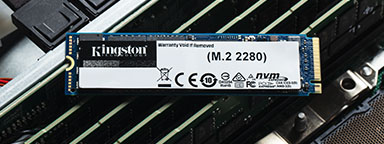
Cameron Crandall of Kingston helps you decide if you should move to your server storage to NVMe SSDs.

There are many advantages to using a dedicated hardware encryption processor in USB flash drives.

What will 2021 bring in Tech and trends? What do our KingstonCognate members and industry experts predicting for the future?

Learn why the future of business depends on SSD-enabled SDS, and how SSD fits into a Software Defined Storage Solutions.

Kingston & Matrix42 partnered to give optimal endpoint security solution in multiple sectors to mitigate risks.

The importance of organisations to consider Revenue, Profit & Risk as equal in organisations to ensure they mitigate data security & cyber security risks. Read this article from Industry Expert, Bill Mew & he will provide you with an insight on this topic.
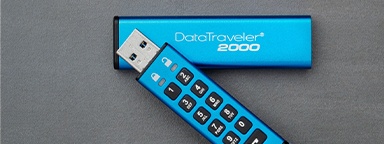
What do industry experts think has changed since the introduction of GDPR?

Data centres should be using server SSDs. There are many benefits over client drives and costs have come down.

NVMe is now the standard protocol for SSDs to empower data centres and enterprise environments.

Cloud and on-premise data centre managers can learn a lot from supercomputing.
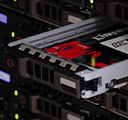
Find out how Hardwareluxx were able to manage the growth of their web traffic using Kingston's DC500M SSD.

SDS hasn’t lived up to its hype but now that NVMe is more affordable, the commodity hardware is ready to deliver.

Choosing the right SSD for your server is important since server SSDs are optimized to perform at a predictable latency level while client (desktop/laptop) SSDs are not. These difference result in better uptime and less lag for critical apps and services.

To work from home you need a good workspace for your PC, the right conferencing gear, and a secure connection.
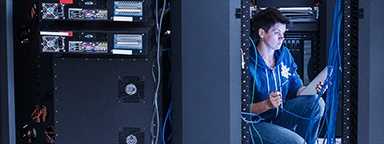
What strategies can organisations use to best secure customers data in a post-GDPR world with the ever-evolving nature of cyber security threats? Kingston pooled the knowledge of some of the UK’s most experienced commentators in cyber security to discuss how data protection has changed since the introduction of GDPR.
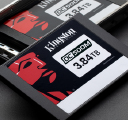
This whitepaper demonstrates how using Kingston Technology’s Data Centre DC500 SSDs can reduce your overall capital and licence costs by 39%.

You already know that remote working is a business enabler. But the challenges posed to your network security and compliance with GDPR are too big to ignore.

How to enable and disable Microsoft’s BitLocker eDrive feature to leverage hardware encryption on your Kingston SSD.

Some of Kingston and IronKey's Secure USB Flash drives are powered by partners, licensed technology, or services.
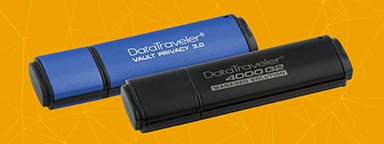
256-bit AES hardware-based XTS block cipher mode encryption is used in DT 4000G2 and DTVP 3.0.
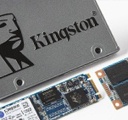
Firmware/hardware PFAIL protection is an highly effective method for preventing data loss in enterprise SSD.
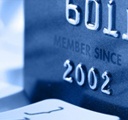
Kingston datacenter SSDs provide excellent resiliency to protect sensitive data in OLTP workloads.

HPC can require massive amounts of data. SSDs consume a fraction of the power of their spinning disk.
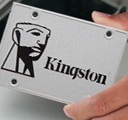
End-to-End Data Protection protects customer’s data as soon as it is transferred by the host system to the SSD, and then from the SSD to the host computer. All Kingston SSDs incorporate this protection.
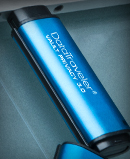
This program offers the options most frequently requested by customers, including serial numbering, dual password and custom logos. With a minimum order of 50 pieces, the programme delivers precisely what your organisation needs.
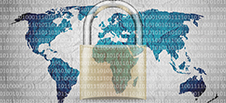
Everyday working life has changed radically and so have traditional ways of working: thanks to mobile storage media, we can access our data practically at any time from any location, and can work on our data wherever we are.
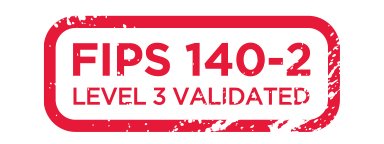
Most IronKey and Kingston secure USB flash drives are FIPS 140-2 Certified.

Heathrow Airport in London (30 October 2017) uses unencrypted USB drives for its non-cloud storage. Unfortunately, it was not standardized on encrypted USB drives.

Storage can be the most challenging component for VDI performance.
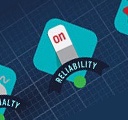
Testing is a cornerstone of our commitment to deliver the most reliable products on the market. We perform rigorous tests on all of our products during each stage of production. These tests ensure quality control throughout the entire manufacturing process.





